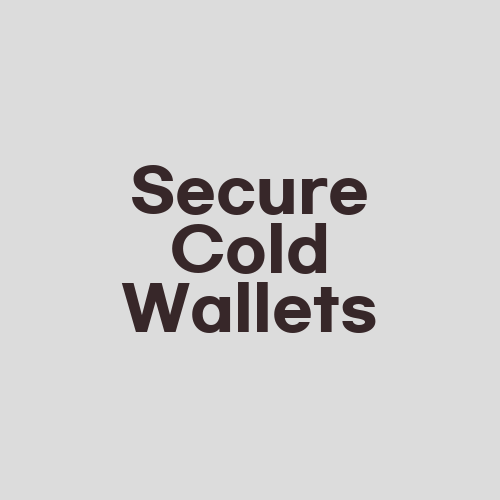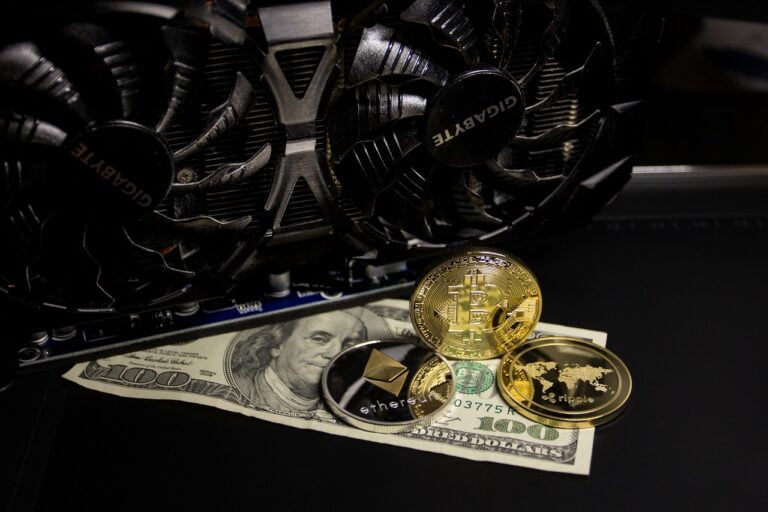Secure Cold Wallets

Secure Cold Wallets: A Reliable and Safe Storage Solution for Your Cryptocurrency
- Introduction to Cold Wallets
- Configuring a Cold Wallet
- Benefits of Using a Cold Wallet
- Tips for Secure Cold Wallet Usage
- Choosing the Right Cold Wallet for Your Needs
- Conclusion
Are you looking for a secure way to store your valuable cryptocurrencies? Look no further than a cold wallet. In this article, we will explore what cold wallets are, how to set them up, the benefits they offer, and tips for using them securely. We will also provide insights on choosing the right cold wallet for your specific needs.
Introduction to Cold Wallets
Before diving into the details of cold wallets, let’s understand what they are. A cold wallet is a type of cryptocurrency wallet that is offline and not connected to the internet. Unlike hot wallets that are connected to the internet, cold wallets provide an additional layer of security by keeping your private keys offline.
Configuring a Cold Wallet
Setting up a cold wallet is easier than you might think. Follow these steps to configure your own cold wallet:
- Choose a Hardware Wallet: Select a reputable hardware wallet that supports the cryptocurrencies you want to store.
- Download the Wallet Software: Visit the official website of the hardware wallet manufacturer and download the wallet software.
- Connect the Hardware Wallet: Connect your hardware wallet to your computer using the provided USB cable.
- Follow the Setup Wizard: The wallet software will guide you through the setup process, including creating a new wallet and generating a recovery seed.
- Write Down Your Recovery Seed: It is essential to write down the recovery seed provided by the wallet software and store it in a safe place. This seed can be used to recover your wallet if you ever lose access to your hardware wallet.
- Create a Secure PIN: Set up a secure PIN for your hardware wallet to prevent unauthorized access.
- Transfer Your Cryptocurrencies: Now, you can transfer your cryptocurrencies to your newly created cold wallet address.
Benefits of Using a Cold Wallet
Cold wallets offer several advantages over hot wallets:
- Enhanced Security: As cold wallets are offline, they are immune to online threats such as hacking and malware attacks.
- Control Over Private Keys: With a cold wallet, you have full control over your private keys, ensuring that only you can access your cryptocurrencies.
- Protection Against Physical Theft: Cold wallets are physical devices that can be stored securely, reducing the risk of physical theft.
- Compatibility with Multiple Cryptocurrencies: Most cold wallets support a wide range of cryptocurrencies, allowing you to store different types of digital assets.
Tips for Secure Cold Wallet Usage
To ensure the highest level of security when using a cold wallet, keep these tips in mind:
- Keep Your Recovery Seed Offline: Store your recovery seed in a safe place offline, preferably in multiple locations.
- Double-Check the Address: Before making any transactions, double-check the wallet address to ensure it is correct.
- Update Firmware and Software: Regularly update the firmware and wallet software to benefit from the latest security enhancements.
- Enable 2FA (Two-Factor Authentication): If supported, enable two-factor authentication to add an extra layer of protection to your cold wallet.
- Encrypt Your Device: If your hardware wallet supports device encryption, enable it to protect your wallet from unauthorized access.
Choosing the Right Cold Wallet for Your Needs
When selecting a cold wallet, consider the following factors:
- Security Features: Look for cold wallets with advanced security features and encryption to protect your digital assets.
- Supported Cryptocurrencies: Ensure that the cold wallet supports the cryptocurrencies you own or plan to acquire.
- User-Friendly Interface: Choose a cold wallet with an intuitive interface to make the configuration and usage process easier for you.
- Reputation and Reviews: Research the reputation and read reviews of different cold wallets to ensure they are trustworthy and reliable.
Investing in a secure cold wallet is crucial for the long-term safety of your cryptocurrency investments. By following the instructions above and considering these recommendations, you can confidently store your digital assets without worrying about potential risks.
Conclusion
A cold wallet is an essential tool for securely storing your cryptocurrencies. Its offline nature and strong encryption provide an added layer of protection against online threats. By configuring a cold wallet following the recommended guidelines and considering the factors for choosing the right one, you can ensure the safety of your digital assets for the long term.
Ready to take the next step in securing your cryptocurrency investments? Visit [reliable site address] to explore a wide range of cold wallets and find the perfect one for your needs.
Frequently Asked Questions
Q1: How does a cold wallet differ from a hot wallet?
A1: A cold wallet is offline and not connected to the internet, while hot wallets are online and accessible through internet-connected devices.
Q2: Can I store all types of cryptocurrencies in a cold wallet?
A2: Most cold wallets support a wide range of cryptocurrencies, but it’s essential to check the wallet’s compatibility with the specific cryptocurrencies you own or plan to acquire.
Q3: What is a recovery seed?
A3: A recovery seed is a randomly generated series of words that serve as a backup for your cold wallet. It can be used to recover your wallet if you lose access to your hardware wallet.
Q4: How often should I update my cold wallet’s firmware and software?
A4: It is recommended to regularly update your cold wallet’s firmware and software to benefit from the latest security enhancements and bug fixes.
Q5: Can I use a cold wallet without a computer?
A5: Yes, a cold wallet can be used without a computer by utilizing its display and buttons for transaction verification and signing.
Q6: Can I use a cold wallet for day-to-day transactions?
A6: Cold wallets are primarily designed for long-term storage and are less convenient for frequent transactions. Hot wallets or online exchanges are typically used for day-to-day transactions.
Q7: How should I store my cold wallet’s recovery seed?
A7: It is crucial to store your cold wallet’s recovery seed offline in multiple secure locations, such as a safe deposit box or a fireproof safe.
Q8: Are all cold wallets the same in terms of security?
A8: While all cold wallets provide an additional layer of security compared to hot wallets, they may differ in terms of additional security features, encryption algorithms, and reputation. It’s essential to choose a reputable and trusted cold wallet for maximum security.




